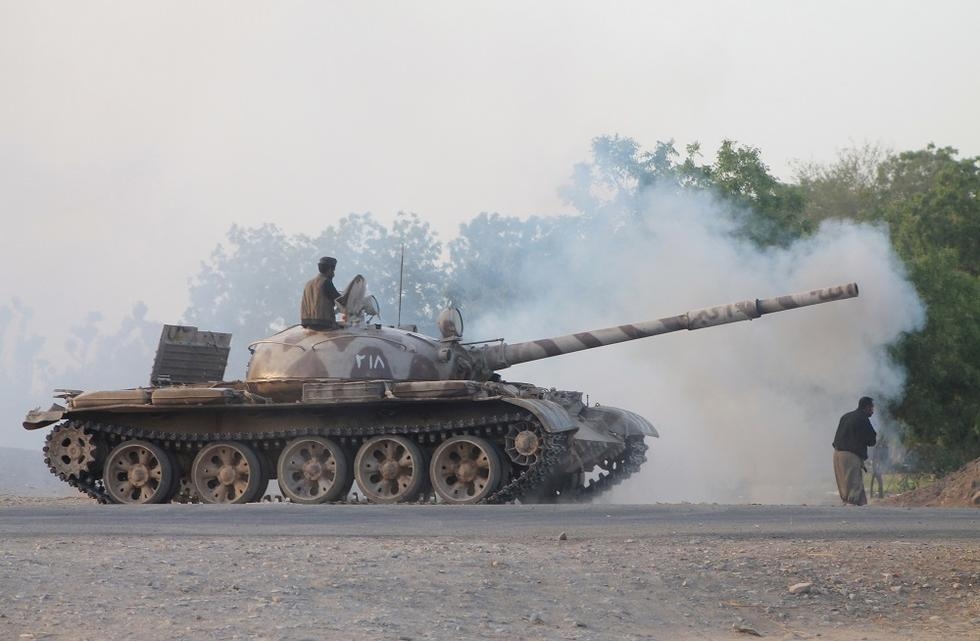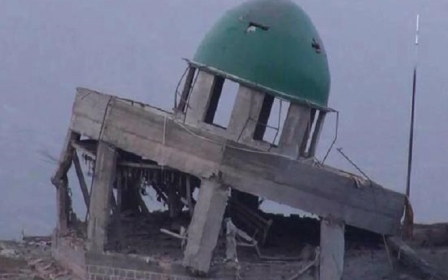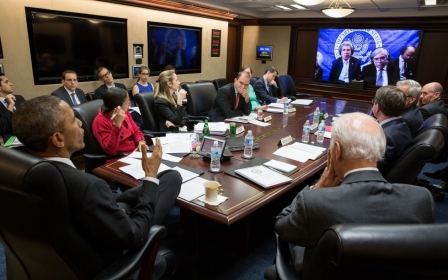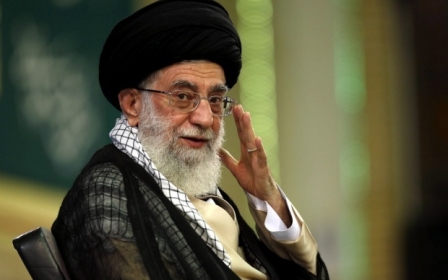Iran could send military advisers to Yemen, says ex-commander

TEHRAN - Iran has sent no arms, military advisers or troops to support the anti-government forces in Yemen which have seized Sanaa and continue to hold large parts of the country in spite of several weeks of Saudi bombardment, a former commander of the Iranian Revolutionary Guards has told Middle East Eye.
Hossein Kanani Moghaddam, who commanded the IRGC towards the end of the eight-year war with Iraq in the 1980s and was also a presidential candidate in 2009 as founder of the Green Party, did not rule out providing military aid in Yemen at a later stage, but said it was unnecessary because Houthi militias had captured so many weapons from government forces.
Referring to the Houthi forces who have swept right down to the southern port of Aden as Ansarullah - the usual terminology in the Iranian media - Kanani Moghaddam said, “If in future they ask for military advisers we can help them. At this point they don’t need our military supplies. All the Yemeni army bases and weapons stores have been occupied by Ansarullah.”
Saudi Arabia has accused Iran of aiding the Houthis, claiming this is proof of a drive by Iran to take control of several countries in the Middle East. In recent days, Saudi officials have focused on an Iranian cargo ship which is bound for the southern Yemeni port of Hodeida and due to dock there on Thursday.
They claim it may be carrying weaponry. Kanani Moghaddam insisted the ship only carried humanitarian supplies, food and medicine.
According to the UN, more than 1,500 Yemenis have been killed and hundreds of thousands have fled their homes since the Saudi-led coalition air attacks began in March.
Iranian TV and print media are full of stories of atrocities, which they say Saudi Arabia has caused, including the bombing of hospitals.
Posters lining Tehran’s main streets highlight Yemen’s plight.
Growing Saudi rift
In an unprecedented escalation of anti-Saudi rhetoric, officials have accused the kingdom of acting more cruelly against the Yemenis than Israel against the Palestinians. Some say it is a “new Nakba,” a reference to the expulsion of Palestinians when the Israeli state was founded in 1948.
“Yemen is like a huge Gaza,” Mohamed Marandi, a Tehran University professor of political science, told MEE.
“Saudi Arabia has never let Yemen prosper. Saudi Arabia has all its oil money but has never helped Yemen.”
He and other Iranian analysts argue that what is happening in Yemen is a national uprising, in which the Houthi forces have joined with the remnants of the Yemeni army as well as popular committees of Sunni tribesmen. They argue that Abd Rabbuh Mansour Hadi, whom Saudi Arabia and the United States are trying to restore to power after fleeing to Riyadh several months ago, has lost his legitimacy.
During the Arab awakening Mansour Hadi was elected transitional President in a poll which only had one candidate. His term was only supposed to last for for two years while a new constitution was hammered out and a national dialogue held. That term expired in February last year.
Iran’s senior clerics have also weighed into the anti-Saudi anti-US criticism at the weekend.
No country could claim to be Muslim while dropping bombs on a neighbouring country, President Hassan Rouhani said as he opened an international Quran competition in Tehran.
Supreme Leader Ayatollah Ali Khamenei focused on the US in a speech on Saturday to Iranian officials and ambassadors of Muslim countries. In his first comments since US President Barack Obama met Arab leaders from the Gulf Co-operation Council at Camp David and pledged to strengthen military co-operation with them, Khamenei said: “America seeks its own interests and will make the region insecure, if needed”.
He called the US “the architect and supporter of terrorism” and said it had created the group known as Islamic State.
The Supreme Leader said countries of the Gulf, including Iran, should work together and exclude the US which had separate interests. Hegemonic powers were trying to make regional states scared of each other, he added.
“Persian Gulf security relates to the countries of the region and not to the US. Therefore security of the region should be provided by the countries of the region. […] We are neighbours: the security of the Persian Gulf is in all our interests. If it is safe, we benefit. If it is not safe, it will be insecure for all.”
In spite of the hard rhetoric against the US, foreign policy analysts here are quietly pleased that Obama urged the Gulf Arabs at Camp David to try to work with Iran.
“The purpose of security cooperation is not to perpetuate any long-term confrontation with Iran or even to marginalise Iran,” he said at a press conference after the meeting. He wanted to ensure “our partners can deal with Iran politically, diplomatically from a position of confidence and strength.”
“Obama’s Camp David statement shows they have finally accepted they have to sit with this government and compromise. Obama said the US is not opposing Iran’s influence in the Middle East,” Abbas Maleki, a former deputy foreign minister of Iran who heads the International Institute of Caspian Studies, told MEE.
New MEE newsletter: Jerusalem Dispatch
Sign up to get the latest insights and analysis on Israel-Palestine, alongside Turkey Unpacked and other MEE newsletters
Middle East Eye delivers independent and unrivalled coverage and analysis of the Middle East, North Africa and beyond. To learn more about republishing this content and the associated fees, please fill out this form. More about MEE can be found here.




